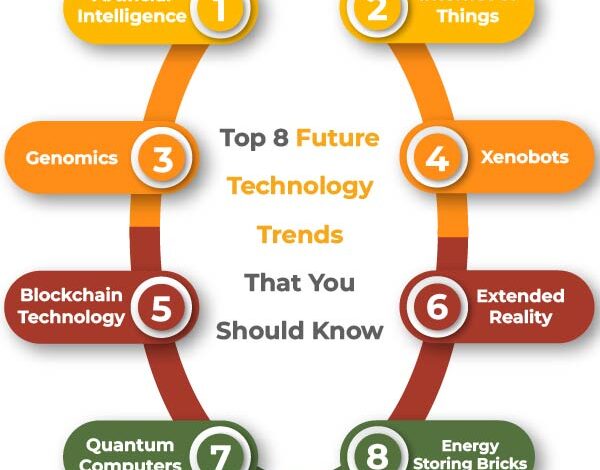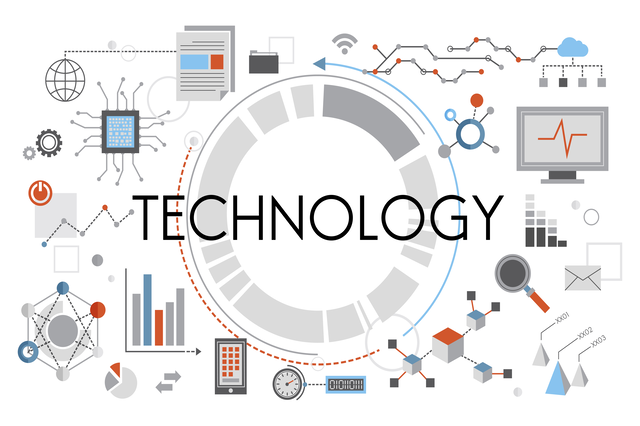Emerging Tech & Future Trends

Navigating Tomorrow: A Deep Dive into Emerging Technologies & Future Trends
The world is changing at an accelerating pace. What felt like science fiction just a few years ago is rapidly becoming reality, thanks to groundbreaking advancements in technology. This post will explore some of the most exciting emerging technologies and future trends poised to reshape our lives – from how we work and communicate to how we interact with the environment.
The Rise of Artificial Intelligence (AI) – More Than Just Chatbots
Artificial intelligence is arguably *the* dominant force shaping the future. While many associate AI primarily with chatbots like ChatGPT, its applications extend far beyond conversational interfaces. We’re witnessing a surge in machine learning algorithms capable of analyzing vast datasets to identify patterns and make predictions – impacting everything from healthcare diagnostics to financial forecasting.
Generative AI is currently capturing headlines, allowing machines to create original content—text, images, music, and even code. This has profound implications for creative industries, software development, and marketing. However, ethical considerations surrounding generative AI – including copyright concerns, the potential for misuse (deepfakes), and job displacement – are crucial areas that need careful attention.
Beyond generative models, we’ll see increased adoption of AI-powered automation across various industries. This includes robotic process automation (RPA) handling repetitive tasks, intelligent automation combining RPA with machine learning for more complex workflows, and AI driving autonomous vehicles – a transformative shift in transportation.
The Metaverse & Web3: Building the Next Iteration of the Internet
The concept of the Metaverse has moved beyond hype to become a tangible area of development. While its ultimate form remains to be seen, it envisions immersive digital experiences where users can interact with each other and digital objects in real-time – often through virtual or augmented reality.

Underpinning many Metaverse initiatives is the technology of Web3. Unlike Web2 (the current internet dominated by centralized platforms), Web3 aims for a decentralized web built on blockchain technology. This means users have greater control over their data and digital assets, facilitated by technologies like NFTs (Non-Fungible Tokens) which verify ownership of unique digital items.
The convergence of the Metaverse and Web3 promises new opportunities in areas like virtual commerce, decentralized governance, and creator economies. Challenges remain around scalability, interoperability between different platforms, and ensuring security within these nascent ecosystems.
Quantum Computing: A Paradigm Shift in Processing Power
Quantum computing represents a fundamental shift in how we process information. Unlike classical computers that use bits representing 0 or 1, quantum computers leverage the principles of quantum mechanics to operate on “qubits” which can exist in multiple states simultaneously. This allows for exponentially faster computation for specific types of problems.
While still in its early stages, quantum computing has the potential to revolutionize fields like drug discovery (simulating molecular interactions), materials science (designing new compounds), and cryptography (breaking existing encryption methods – and creating new ones). The development of fault-tolerant quantum computers remains a significant challenge, but progress is accelerating.
Biotechnology & Bioengineering: Redefining Life Itself
Biotechnology continues to push the boundaries of what’s possible in healthcare and beyond. CRISPR gene editing technology allows for precise modification of DNA sequences, offering potential cures for genetic diseases and enhancing crop yields.
Bioengineering focuses on designing and building biological systems – from artificial organs and tissues to bio-sensors that can monitor health metrics in real-time. Synthetic biology aims at creating entirely new biological parts and devices, opening up possibilities for sustainable manufacturing and bioremediation.
Ethical considerations related to biotechnology are paramount, particularly around genetic engineering and the potential impacts on ecosystems. Responsible innovation is key to harnessing these powerful tools safely and effectively.
Sustainable Technologies: Addressing Climate Change & Resource Scarcity
The urgency of climate change is driving rapid innovation in sustainable technologies. This includes advancements in renewable energy sources like solar, wind, and geothermal; improved battery storage technology for grid stability; and carbon capture technologies to remove CO2 from the atmosphere.
Beyond energy, sustainable practices are impacting various sectors. Precision agriculture uses data analytics and automation to optimize resource use (water, fertilizers) in farming. Circular economy models aim to minimize waste by reusing and recycling materials. The development of alternative proteins – plant-based and cultivated meat – addresses the environmental impact of traditional animal agriculture.
The Internet of Things (IoT) & Edge Computing: Connecting Everything
The Internet of Things (IoT) is expanding exponentially, connecting billions of devices—from smart appliances to industrial sensors. This generates vast amounts of data that needs to be processed and analyzed in real-time.
Edge computing addresses this need by bringing computation closer to the source of data – reducing latency, improving reliability, and enhancing security. Imagine self-driving cars making split-second decisions based on sensor data processed locally, or smart factories optimizing operations based on real-time machine performance monitoring.
Looking Ahead: Navigating a Future Shaped by Technology
The technologies discussed above are not isolated entities; they often converge and amplify each other’s impact. For example, AI can be used to optimize IoT networks, while quantum computing could unlock new possibilities in biotechnology.
It’s crucial to approach these advancements with both excitement and caution. Ethical considerations, responsible innovation, and a focus on ensuring equitable access to technology are vital for shaping a future where technological progress benefits all of humanity. Continuous learning and adaptation will be essential as we navigate this rapidly evolving landscape.
Further Exploration:
This is just a glimpse into the exciting world of emerging technologies. We encourage you to explore these topics further through reputable sources, industry publications, and by engaging in discussions with experts.



